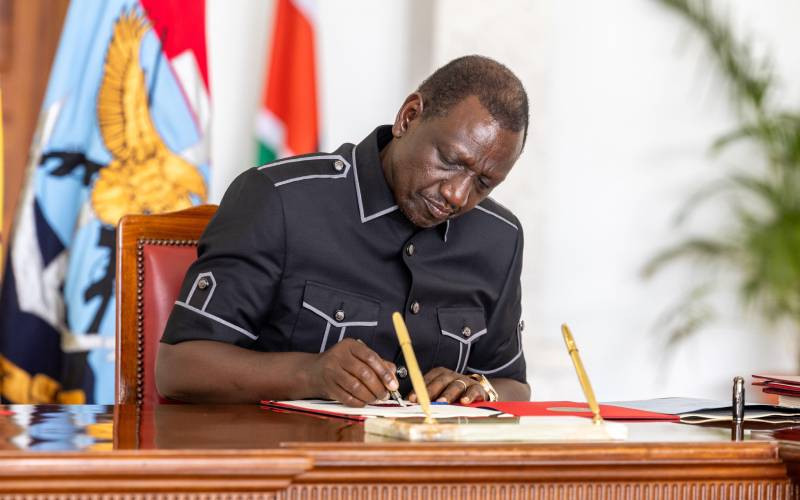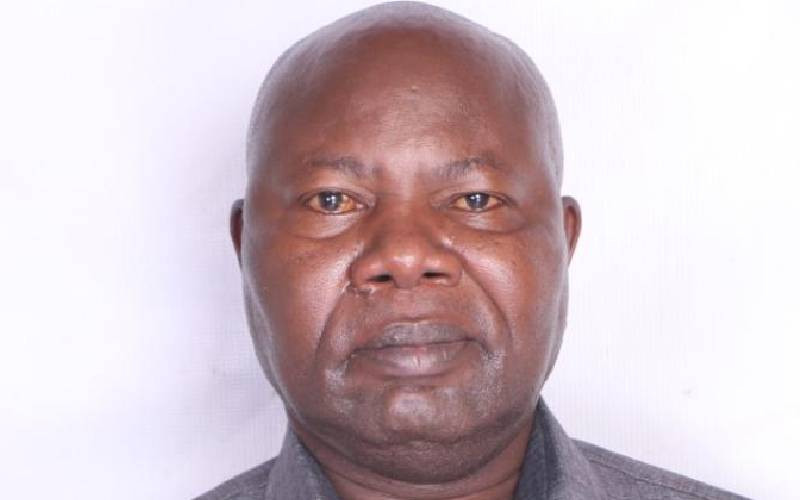By Stephen Makabila
Kenya: Hiccups that came with the first ever on-line registration of national examinations this year aside, the country’s basic Education sector could be headed for a major transformation next year if two upcoming Bills sail through Parliament and are assented to by the President.
The Bills come only days before the start of the curriculum review set for May, according to Kenya Institute of Curriculum Development (KICD) director Lydia Nzomo.
According to Sessional Paper number 14 (2012), meant to drive reforms in education and training sectors, a reviewed curriculum is supposed to be ready by 2015.
The Ministry of Education developed the Sessional Paper.
Shoulder burden
In the first lined-up Bill, instead of parents, the Government is set to shoulder the burden of paying Kenya Certificate of Secondary Education (KCSE) and Kenya Certificate of Primary Education (KCPE) examination fees to the Kenya National Examination Council (KNEC).
Currently, KNEC levies Sh800 for KCPE candidates and Sh5,800 for KCSE. The figures could, however, vary according to institutions, depending on logistics involved.
Though on-line registration of KCSE, which was to end on March 31, delayed amid confusion, forcing an extension to April 7 (tomorrow) by the Education Ministry, there are those who have blamed the delay on financial constraints facing parents due to the hard economic times, while others have blamed the online system.
“Of course the system can be blamed, being the first time, but the reality is that poverty remains high in most parts of the country and head teachers are also slowed down by some parents who do not clear examination fees in time,” says Prof Sammy Kubasu, the Universities Academic Staff Union (Uasu) national chairman.
If the Examination Bill sponsored by Navakholo MP Emmanual Wangwe, and which has already been approved by the Speaker of the National Assembly Justin Muturi and two House Committees (Budget and Education Committees) goes through, parents will be saved over Sh2 billion for the more than 1.2 million KCSE and KCPE candidates in 2015.
Secondly, opposition MPs are set to amend the Education Act to compel the State to absorb all students who sit for KCPE into secondary schools, and make education free right from primary to secondary school levels.
Currently, the Government offers free primary education (FPE) and subsidised secondary education, where parents cater for some of the costs at the secondary level.
However, the MPs now want the law to make it compulsory for every Kenyan child to get secondary education as part of basic education, which is guaranteed by the Constitution of Kenya 2010.
The ODM legislators say they are targeting Basic Education Act 2013, to have it amended and ensure the definition of basic education extended up to secondary school level and made free and compulsory.
Stay informed. Subscribe to our newsletter
According to the statistics of last year’s KCPE results released in December, a total of 839,759 candidates sat for the examination with about half of those qualifying to join secondary schools having scored over 250 marks.
“Out of these 417,483 scored above 250 marks proceeding to secondary school and the other 422,276 are set to discontinue their education,” says Ugunja MP Opiyo Wandayi, one of the MPs pushing for the amendment.
The Examination Bill sponsored by Wangwe, which originates from Article 43 (1) of the Constitution that states every child has a right to basic education, seeks to abolish examination fee levies by the Kenya National Examination Council (KNEC) on both KCPE and KCSE candidates from next year.
Speaker Muturi had last month re-committed the Draft Bill to the Parliamentary Committee on Education for pre-publication scrutiny.
Education committee chaired by Sabina Chege and the Budget Committee chaired by Gachoka MP Mutava Musyimi have already approved the Bill.
Musyimi is now expected to table his endorsement report back to the National Assembly.
Across section of MPs, among them Ndhiwa’s Agostino Neto, have expressed support for the Draft Bill.
And the Kenya National Association of Parents (KNAP) has now put MPs on the spot over the Draft Bill on national Examination in Primary and Secondary Schools.
KNAP Secretary-General Musau Ndunda has cautioned MPs who will not support the Bill when it is tabled in Parliament, should be ready to face the wrath of parents come 2017.
Financial difficulties
Prof Kubasu and the Kenya National Union of Teachers (Knut) Secretary General Wilson Sossion have also supported the Draft Bill.
A total of 1.2 million candidates sat for national examinations in primary and secondary schools countrywide last year.
Some 449,246 candidates were from secondary schools while 844,475 candidates, including 906 from the South Sudan, sat KCPE and the numbers could be higher this year and next year given the annual trends.
“When we talk of basic education, which includes primary and secondary, even examination fees should be shouldered by the Government and we expect all MPs to rally behind the Bill,” said Ndunda.
Ndunda said there were many children who do not sit for national examinations due to financial difficulties and that the Bill was timely.
Wangwe who told The Standard on Sunday he was lobbying more MPs to his side, maintained that the Government should pay examination fees for KCPE and KCSE candidates from next year, arguing it beats logic that a Government that professes free primary education and free tuition in secondary school has no budget provision for candidates to be examined at the conclusion of their studies.
“What is the logic of catering for the upkeep of a pupil in class for eight years only for them to miss out on national examinations because of lack of the examination fees levied by KNEC?”posed Wangwe.
Shinali said majority of candidates hail from poor backgrounds, which makes it difficult for them to enroll for the examinations.
“Poverty remains a big challenge to many citizens of this country, especially in rural areas, yet examination fees have risen to an extent that they are unaffordable by many parents,” noted Shinali.
ODM legislators have also stepped up efforts to have Basic Education Act 2013 amended and ensure the definition of basic education extended up to secondary school level and made free and compulsory. MPs Wandayi, Florence Mutua (Busia Woman Rep), Joyce Lay (Taita Taveta Woman Rep) and Junet Mohamed (Suna East), say the Bill intends to ensure that all Kenyan children receive education.
As it is, they argue that the law only provides basic education up to Class Eight but is silent on transition to secondary school, leaving thousands of students out of school every year.
Bi-partisan approach
The MPs have indicated they will be building a bi-partisan approach to the amendment, saying the move will even help the Jubilee Government implement its manifesto that promised free basic education.
“We are telling the Jubilee Government that it is time now to walk the talk and implement your manifesto. Even ODM and Cord had promised Kenyans the same, so we expect these amendments to sail through,” notes Wandayi
Ms Lay noted that majority of the kids who do not get secondary school education end up engaging in social ills such as crime and child prostitution.
And to address the menace, Ms Lay said the Government has the capacity to expand the existing infrastructure to ensure all children have access to the basic right of education.
 The Standard Group Plc is a
multi-media organization with investments in media platforms spanning newspaper
print operations, television, radio broadcasting, digital and online services. The
Standard Group is recognized as a leading multi-media house in Kenya with a key
influence in matters of national and international interest.
The Standard Group Plc is a
multi-media organization with investments in media platforms spanning newspaper
print operations, television, radio broadcasting, digital and online services. The
Standard Group is recognized as a leading multi-media house in Kenya with a key
influence in matters of national and international interest.
 The Standard Group Plc is a
multi-media organization with investments in media platforms spanning newspaper
print operations, television, radio broadcasting, digital and online services. The
Standard Group is recognized as a leading multi-media house in Kenya with a key
influence in matters of national and international interest.
The Standard Group Plc is a
multi-media organization with investments in media platforms spanning newspaper
print operations, television, radio broadcasting, digital and online services. The
Standard Group is recognized as a leading multi-media house in Kenya with a key
influence in matters of national and international interest.








